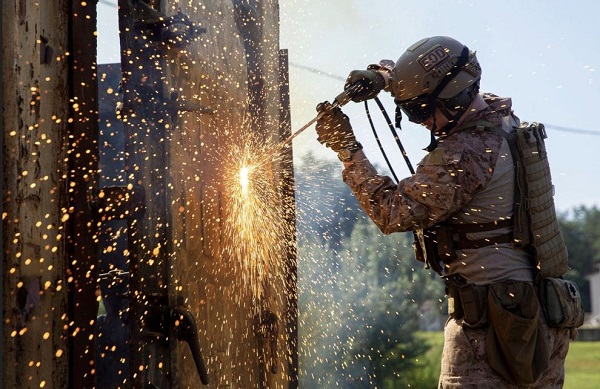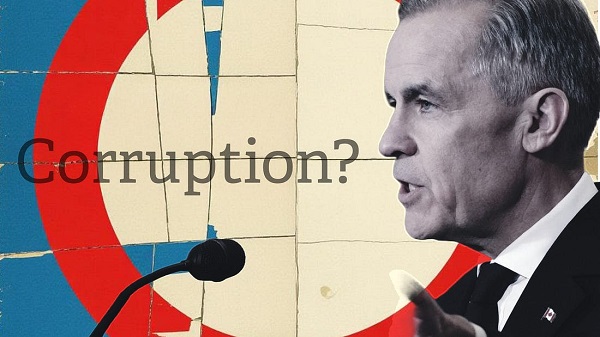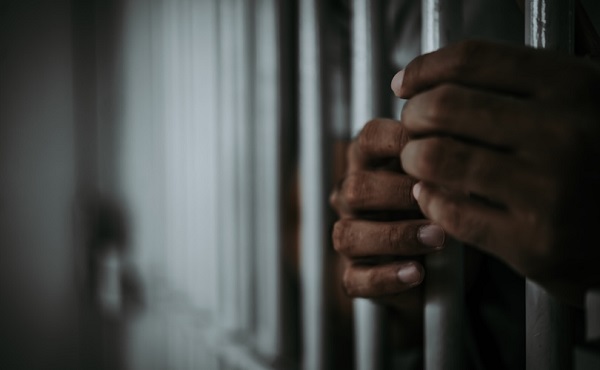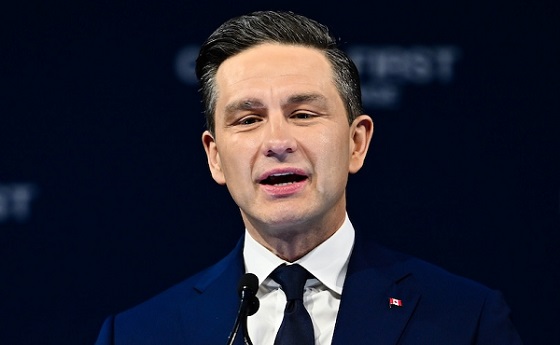espionage
Attempted break in at Marine Corps Base Quantico in Virginia by illegal immigrant and Jordanian on expired student visa

A Marine breaches through a hatch during training at Marine Corps Base Quantico, Va.
From The Center Square
By Bethany Blankley
GOP House members demand answers about Quantico breach, terrorist threat
Multiple members of Congress are demanding answers about the federal government’s ability to prevent a terrorist attack after two Jordanian nationals attempted to break into Marine Corps Base Quantico in Virginia.
This is after concerns were raised about a Chinese national who recently breached a Marine Corps base in the El Centro CBP Sector after illegally entering the country, and after individuals identified as known or suspected terrorists (KSTs) are continuing to be apprehended at record numbers after illegally entering the country, The Center Square reported.
U.S. Rep. Chip Roy, R-Texas, led a group of 12 Republican members of Congress demanding answers from the U.S. Department of Homeland Security and Federal Bureau of Investigation about the Quantico breach, questioning if it constituted a terrorist attack. The letter was announced Tuesday and is dated May 23.
“A brazen attempt to infiltrate a military installation by foreign nationals from a terror-prone region rightly raises concerns as to whether this constituted a possible terrorist attack,” the House coalition said in a letter to DHS Secretary Alejandro Mayorkas and FBI Director Christopher Wray. “Yet, the federal government has not disclosed whether this breach was terror-related.”
On May 3, two Jordanian male nationals attempted to breach a Marine Corps base using a box truck. They were eventually detained and turned over to Immigration and Customs Enforcement. It was later revealed that one illegally crossed the border last month and was released into the interior by Border Patrol agents. The other overstayed his student visa and was in the country illegally. One was identified as a KST.
“The American people deserve to know the scope of the threat posed by potential terror suspects, and the extent to which the open border policies of this administration are facilitating it,” the coalition said.
Joining Roy are Republican Reps. Andy Biggs and Paul Gosar of Arizona, Josh Brecheen of Oklahoma, Andrew Clyde of Georgia, Matt Gaetz of Florida, Bob Good of Virginia, Mary Miller of Illinois, Barry Moore of Alabama, Ralph Norman of South Carolina, Andy Ogles of Tennessee, Tom Tiffany of Wisconsin, and Randy Weber of Texas.
Last week, a coalition of 12 U.S. senators demanded answers, led by U.S. Sen. Ted Budd, R-N.C., of Mayorkas and Wray.
“This deeply concerning incident occurred mere weeks after a Chinese national who was in the country illegally broke into Marine Corps Air Ground Combat Center Twentynine Palms on March 27,” they said.
House Committee on Homeland Security Chairman Mark Green, R-Tenn., and three other Republican committee chairmen also demanded answers from Mayorkas, Wray and Department of Defense Secretary Lloyd Austin. The committee is investigating the incident, they said, and is concerned about previous requests that remain unanswered.
In September 2023, Green and Subcommittee on Counterterrorism, Law Enforcement, and Intelligence Chairman August Pfluger, R-Texas, sent a letter to Mayorkas, Wray, and Austin requesting information about how the agencies were responding to possible breaches of U.S. military installations and critical infrastructure from the Chinese Communist Party. According to Wall Street Journal report, Chinese nationals attempted to access U.S. military bases and other sensitive sites roughly 100 times in recent years.
DHS and the FBI “failed to provide any substantive response” to their request, they said.
In a November 2023 hearing, Mayorkas “repeatedly refused to answer when asked by Chairman Pfluger whether DHS continuously detains those found to be on the terrorist watchlist,” they said.
The greatest number of KSTs have been apprehended by CBP and Border Patrol agents under the Biden administration, The Center Square has reported. This fiscal year, they total 277, after the greatest number in U.S. history was apprehended in fiscal 2023 of 736, The Center Square reported.
“The alarming conclusion from these numbers is every day we have individuals that are on the FBI terrorist watch list that could have an intention to harm our country and are entering every single day,” former Border Patrol Chief Mark Morgan told The Center Square. “It’s not if or when the threat tries to come to our country. We already know that’s happening already. The threat is already here,” he said, referring to the at least two million foreign nationals who illegally entered the country and evaded capture, some of whom may be KSTs.
The attempted breach at MCB Quantico “reflects a possibly more dire reality for the state of U.S. national security,” Green’s coalition said.
DHS’s “relaxed vetting standards” have created “an environment ripe for exploitation by individuals aiming to undermine the United States at its most critical points. If individuals on the terrorist watchlist are so emboldened to attempt to breach a Marine Corps base, the Department of Homeland Security and the entire executive branch must act swiftly to identify, apprehend, and detain such hostile actors on American soil.”
espionage
Breaking: P.E.I. Urges RCMP Probe of Alleged Foreign Interference, Money Laundering

The Great Enlightment Buddhist Academy, PEI
Prince Edward Island’s government has formally asked the RCMP to investigate allegations of foreign interference and money laundering tied to Buddhist-affiliated organizations operating in the province — an escalation that follows The Bureau’s reporting and last week’s press conference on Parliament Hill calling for a federal public inquiry.
In a letter sent today to RCMP Commissioner Michael Duheme, Premier Rob Lantz and Minister of Housing Cory Deagle urge federal authorities to “review any evidence available, engage with the individuals who have made these claims, and conduct an investigation into any wrongdoing.” A companion letter was sent to FINTRAC, asking Canada’s financial intelligence unit to assess whether regulatory action is warranted.
The government move comes a week after The Bureau reported on findings presented at an October 8 news conference tied to the book Canada Under Siege: How P.E.I. Became a Forward Operating Base for the Chinese Communist Party.
In a following op-ed, co-author Garry Clement said the press conference had “set down a marker: Canada has entered a new era of contestation — over influence, sovereignty, and the integrity of its democratic institutions.” In related coverage by CBC, representatives of the religious groups have denied any links to the Chinese Communist Party or any improper dealings.
Clement and co-authors argued that the allegations demand “action, reform, and reckoning,” and called for a federal public inquiry with full powers — an appeal joined by former Solicitor General and long-time P.E.I. MP Wayne Easter, who urged an inquiry capable of compelling testimony and documents.
The Bureau also revealed a development that stunned Islanders: a response subpoenaed by P.E.I. lawmakers showed that an anticipated 2016–2018 Island Regulatory and Appeals Commission (IRAC) investigation into Buddhist-linked land holdings was never completed. A January 26, 2018 letter from IRAC’s appointed counsel notified firms representing the groups that the section 15 probe “has ended,” without public findings or any explanation of who ordered the closure or why. The disclosure raised fresh questions about oversight and potential conflicts, and now forms part of the backdrop to the province’s formal request for federal action.
The Bureau contacted IRAC last week with questions related to the agency’s management, including counsel relationships and prior positions within P.E.I. legal networks. New developments on this breaking story will be reported.
Today’s letter to RCMP Commissioner Duheme from the P.E.I. government explicitly references the October 8 statements by a former Solicitor General of Canada and a former RCMP Superintendent, noting it was “suggested that information exists that could provide grounds for a criminal investigation.” The Premier further flags assertions that P.E.I. has been used as “a forward operating base for the Chinese Communist Party,” calling the claim “serious” and stating it must be examined by federal agencies to determine whether any factual basis exists.
The province also points to what it describes as a newly mandated and ongoing investigation by IRAC into land holdings “associated with some of the same entities referenced in the public allegations,” using powers expanded in 2022 under the Lands Protection Act. Any findings with criminal or national-security implications, the letter says, will be referred to federal authorities.
The Bureau is a reader-supported publication.
To receive new posts and support my work, consider becoming a free or paid subscriber.
Crime
Canadian Sovereignty at Stake: Stunning Testimony at Security Hearing in Ottawa from Sam Cooper

Canada’s Border Vulnerabilities: Confronting Transnational Crime and Legal Failures
The Bureau has chosen to publish the full opening statement of founder Sam Cooper before the House of Commons Standing Committee on Public Safety and National Security, during the session titled “Canada–United States Border Management,” held on Tuesday, October 7, 2025, and webcast live at https://www.ourcommons.ca/
https://www.ourcommons.ca/Committees/en/SECU/Meetings?utm_source=substack&utm_medium=email
I offer these remarks and recommendations with humility. I’m still learning every day. I speak regularly with numerous law-enforcement and security professionals in both the United States and Canada. For over a decade, I’ve focused professionally on the threats that transnational crime poses to Canada’s borders, institutions, and people, alongside deep reporting on our financial and legal vulnerabilities to threat networks that often include ties to hostile state activity. Canada’s recent terror designation of the India-based Bishnoi gang is important. But that particular action recognizes only one facet of the many-sided transnational fentanyl, human-trafficking, Chinese-supplied chemical precursor, weapons-trafficking, terror and extremism threats that I will discuss today.
Across hundreds of interviews with Canadian and U.S. experts, I have come to a conclusion: many Canadians — including citizens, lawmakers, and judges — do not yet fully understand the scope and nature of the problem, and also seem defensive in engaging it. And if we don’t understand it, we cannot solve it.
In these politically divisive times, I hope I can add value by relaying, clearly and fairly, what professionals on both sides of the border are saying about the cultural, legal, and political differences that impede cooperation between the United States and Canada. My reporting has emphasized Canadian enforcement challenges — not to be unduly critical of my homeland, but because I think we should focus first on the levers we control, and reforms we should have already tackled decades ago.
This isn’t my opinion only. As you know, Canadian Association Police Chiefs president Thomas Carrique recently warned that police are being asked to confront a new wave of transnational threats with “outdated and inadequate” laws “never designed to address today’s criminal landscape.” He added that Canada would have been far better positioned to “disrupt” organized crime had Ottawa acted on reforms first recommended in the early 2000s.
As RCMP Assistant Commissioner David Teboul said this year after the discovery of major fentanyl labs in British Columbia — notable for their commercial-grade chemistry equipment and scientific expertise — “There’s a need for legislative reform around how such equipment and precursor chemicals can be obtained.” More border regulations could help, but will not be sufficient absent foundational legal change.
It has long been my experience in discussions with senior U.S. enforcement experts that American and Australian police can collaborate effectively because the two nations are able to authorize wiretaps on dangerous transnational suspects within days. In Canada, that speed is impossible, and it has become a major obstacle.
As former RCMP investigator Calvin Chrustie testified before British Columbia’s Cullen Commission several years ago, due to judicial blockages arising from Charter of Rights rulings, it had become practically impossible to obtain timely wiretaps on Sinaloa Cartel targets in Vancouver. In recent years, such delays in sensitive investigations have undermined cooperation between the RCMP and the U.S. Drug Enforcement Administration in major cases of fentanyl trafficking and drug money laundering. In 2017, I was personally alerted to these longstanding concerns about the breakdown in RCMP–DEA cooperation by a U.S. State Department official.
These impeded investigations have involved the upper echelons of Chinese Triads, which maintain deep global leadership in Canada and align with Chinese state-interference networks, as well as senior Iranian and Hezbollah-linked networks operating here. Both networks are engaged in fentanyl trafficking and money laundering in collaboration with Mexican cartels active in Canada.
Canada must urgently reform what it can fix on our side.
My first recommendation is this — there is no “low-hanging fruit.” I have not spoken to a single knowledgeable Canadian officer — current or former — who believes that simply spending more on personnel, equipment, training, or border staffing will solve this. What I hear is that, from ten to twenty years ago, before the evolution of Charter-driven disclosure and delay jurisprudence in Canada, our nations enjoyed a much closer enforcement relationship. Experts point above all to two Supreme Court rulings — Stinchcombe and Jordan — as the core legal obstacles. Our Stinchcombe disclosure standards and Jordan time restrictions, as applied, disincentivize complex, multi-jurisdictional cases and deter U.S. partners from sharing sensitive intelligence that could be exposed in open court. Veterans describe enterprise files stalling for lack of approvals or because specialized techniques are denied. When police and prosecutors anticipate disclosure fights they cannot resource — and trial deadlines they cannot meet — the rational choice is to avoid the fight altogether.
I can explain in greater detail, but without question these rulings have devastated Canada’s ability to prosecute sophisticated organized crime. The result is a vicious circle of non-prosecution and impunity. To deny the need for deep legal reform is to deny the depth of the problem.
To sum up, my reporting at The Bureau has highlighted interlocking failures — legal, political, and bureaucratic — that have turned Canada into a permissive platform for synthetic narcotics and criminal finance, badly misaligning us with our Five Eyes law-enforcement and intelligence partners, and bringing us to the brink of a rupture with the United States.
Thanks for your attention, Chairman and Members.
The Bureau is a reader-supported publication.
To receive new posts and support my work, consider becoming a free or paid subscriber.
-

 Business2 days ago
Business2 days agoFederal Budget 2025: A responsible media would ensure Canadians know about the dismal state of federal finance
-

 Business2 days ago
Business2 days agoCanada has an energy edge, why won’t Ottawa use it?
-

 International1 day ago
International1 day agoPoland’s president signs new zero income tax law for parents with two children
-

 Automotive15 hours ago
Automotive15 hours ago$15 Billion, Zero Assurances: Stellantis Abandons Brampton as Trudeau-Era Green Deal Collapses
-

 Alberta2 days ago
Alberta2 days agoDiploma Exams Affected: No school Monday as ATA rejects offer of enhanced mediation
-

 Business2 days ago
Business2 days agoEthics on Ice: See You Next Year
-

 International1 day ago
International1 day agoAustralian territory bans men from women’s prisons in national first
-

 National1 day ago
National1 day agoPoilievre accuses Canada’s top police force of ‘covering up’ alleged Trudeau crimes





